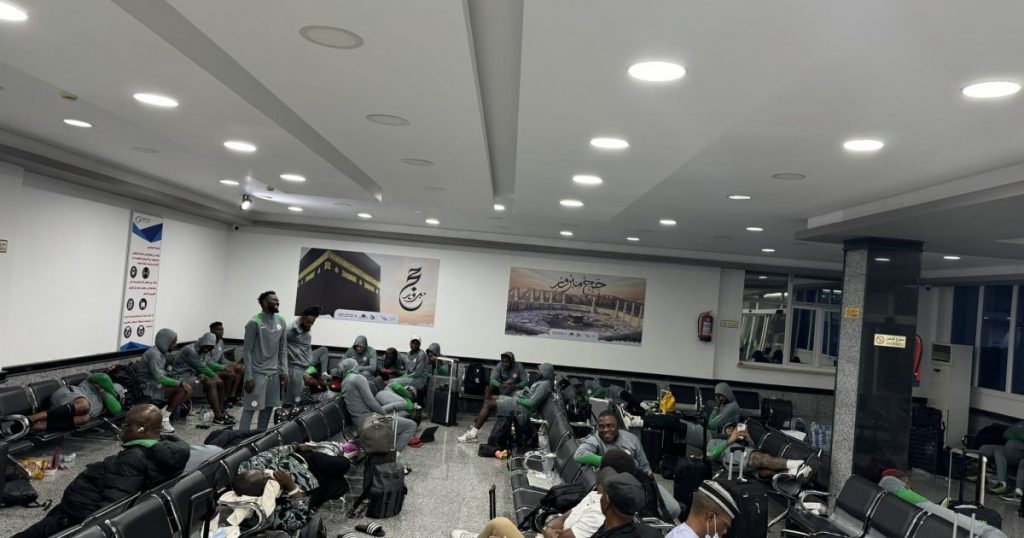The Super Eagles, Nigeria’s national football team, faced significant challenges while trying to depart from Libya after an arduous delay of over 14 hours. Reports from sports enthusiasts, including prominent social media figure Pooja Media, highlighted the issues surrounding the team during their stay. The delays and alleged mistreatment by Libyan authorities drew attention and concern from fans and analysts alike, raising questions about the logistical and diplomatic barriers faced by athletes who travel internationally for competitions.
As the situation unfolded, Bruno Onyemaechi, a player on the Super Eagles team, expressed his relief at finally being able to leave Libya. His comments, shared on social media, underscored a sense of frustration among the players regarding their treatment in the host country. Onyemaechi emphasized his desire to distance himself from the ordeal, indicating that the experience had adversely affected him and his teammates. Such sentiments reflect the psychological toll that such events can impose on athletes, who are often expected to prioritize performance over external circumstances.
One of the most troubling aspects of the incident was the alleged refusal by Libyan authorities to provide necessary support for the Super Eagles’ chartered flight, operated by ValueJet. The team’s need for aviation fuel was also reportedly denied, which significantly delayed their departure. These actions not only created a logistical nightmare but also raised questions about the responsibilities of host countries in facilitating the safe travel of visiting teams. In international sports, the treatment of athletes is critical, as it reflects on the reputation and commitment of the hosting nation.
The players’ experiences in Libya have broader implications for the structuring of international sporting events. When athletes face undue stress and mistreatment from host nations, it can tarnish the spirit of competition. Teams should be able to focus solely on their performance and preparation without the distraction of logistical challenges or diplomatic tensions. The situation also highlights the importance of having clear agreements and protocols in place to ensure the smooth operation of international matches, including transportation and accommodation needs.
Furthermore, this incident could lead to calls for increased accountability and transparency among sports governing bodies regarding how they select host countries and monitor their treatment of visiting teams. There is a need for policies that safeguard the rights of athletes while ensuring that all parties involved adhere to high standards of hospitality and sportsmanship. These policies could include measures to provide swift resolutions in cases of conflict and accessible channels for reporting grievances.
Ultimately, the successful departure of the Super Eagles from Libya marked the end of a challenging episode for the team. While they are relieved to return to Nigeria, the experience emphasizes the critical need for systemic improvements in how international sporting events are organized, particularly in ensuring the well-being of athletes. Moving forward, stakeholders in the sports community must collaborate to prevent such occurrences from happening again, thereby preserving the integrity and positive spirit of international competition.


